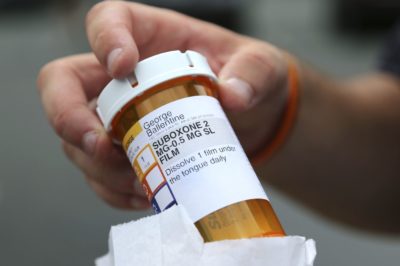Dope Sick: What Dope Sickness Feels Like During Opiate Withdrawal
There’s nothing glamorous about being dope sick, and if you’re not familiar with the term, keep reading; you’ll soon understand why those who are cringing at the sight of the term.
What is dope sickness
Imagine that you experience anxiety and depression. You think, okay, maybe I can handle this. Then comes the onslaught: fever, nausea, vomiting, sleeplessness, sweating, cramping, and add on a runny nose and watery eyes just for fun. Not so pleasant, is it?
In fact, it’s hell.
Being “dope sick” is the slang term for what the body goes through during withdrawal from heroin or other opioids.
Many who have gone through the process describe it as having the flu but 100 times worse.
Why opioid and heroin addicts experience dope sickness
Opioids, including heroin, attach to and activate the opioid receptors in our brain that then release endorphins and other “feel-good” neurotransmitters. When appropriately prescribed, and appropriately used, opioids can be effective in managing pain. When overused or used in high doses, opioids will elicit a high.
Opioids, including heroin, make our perception of pain decrease and our perception of pleasure increase. The continued use of opioids decreases the natural production of opiates in our brain; eventually, the brain needs the man-made version to simply feel normal.
It’s no wonder why these drugs are so addictive. When the brain is no longer being fed the drug, a drug on which it now depends in order to feel normal, it experiences withdrawal and feels “dope sick.”
Understanding the opioid withdrawal timeline
When we don’t feel well, we naturally look for something that’s going to help us feel better. For heroin users, their version of chicken soup is more heroin. The physiological pain of withdrawal is incredibly difficult to handle. The brain has become so dependent on the opioid to feel “normal” that it needs time to readjust to be able to feel that way on its own again. Until that happens, however, it craves the drug to feel good again.
The timeline
- Withdrawal symptoms will start to kick in within eight to 12 hours after the last dose.
- The more heroin someone uses, the worse the withdrawal.
- The longer someone has been using, the longer the withdrawal symptoms will last.
- Withdrawal symptoms can last between four to ten days from the last use.
What does this mean for those looking to recover and those looking to help someone recover?
Withdrawal from heroin is serious. It is often the biggest obstacle to recovery.
With that said, it is also not impossible, and that’s the most important thing to remember. It’s important to understand the challenges associated with the withdrawal in order to best prepare for the process, not to shy away from it.
Whether you or someone you know is looking to quit and about to embark on the withdrawal process, here’s what you need to know:
- Simply put, it’s not an easy process. The more you know ahead of time, the better.
- The addict’s brain has developed a dependence on a synthetic drug to produce chemicals it once naturally produced. This process can be reversed. It is just going to take time.
- Can addicts go cold turkey? Yes. Is it recommended? No. It’s best to seek help from those who will understand the severity of the drug cravings. The number of those who succeed in recovering on their low is very low because the withdrawal symptoms are so difficult.
- If an addict chooses to rehab at home, make sure a trusted friend is there to help alleviate symptoms, prevent a relapse, or to help in the event there’s a health complication.
- The top recommendation is to rehab at a facility where specialists can provide around-the-clock care, nutrition, and fluids to help ease the symptoms. They might also provide medications to help with the withdrawal.
- Recovery does not end after the detox. Without counseling, therapy, and comprehensive treatment for heroin recovery, people often relapse.
The most important thing to remember
Help is available. Although withdrawal symptoms are challenging, they are not insurmountable. Seek the guidance of those who understand the process and can help with not only the short-term recovery but the long-term recovery process to prevent relapse.


